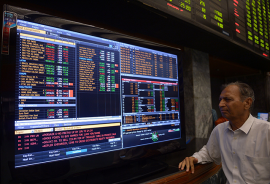
Talking of democracy reminds me of Bilawal Bhutto when, on December 31, 2007, he reiterated his mother’s thoughts that “democracy is the best revenge”. Since then, the people of Pakistan are paying the cost of democracy in various forms, the recent being in the form of circular debt in the power sector. According to the finance ministry, current estimates of circular debt persist between Rs 500 to Rs 650 billion and the exact amount needs to be determined.
As a result of severe electricity shortage, industry, commerce and agriculture have all taken serious hits with the country’s growth prospects diminishing significantly. This is primarily due to lower-capacity utilisation, which in turn has been the result of ‘circular debt’, a concept that has been bandied around freely over the past few years as the primary problem that besets energy production in Pakistan. However, despite its dominance of policy discourse, circular debt is not the fundamental issue here. The two most glaring reasons behind the present mess Pakistan finds itself in are the 1994 energy policy and the resultant extreme over-reliance on expensive imported fuel mix.
The core problem lies in wrong policy choices made in the early 1990s that have continued since then. These choices made for whatever reasons (pressure from the World Bank, corruption and incompetence) have shifted Pakistan away from self-reliance in energy generation and landed us at the mercy of daily fluctuations of the international oil/gas markets and choked industrial progress in the country.
A resolution to the circular debt is critical for stimulating economic growth and attracting fresh investment in the power sector. If left unresolved the build-up could pull down the economy.
The writer is a freelance journalist based in Karachi
Published in The Express Tribune, January 2nd, 2012.
COMMENTS (3)
Comments are moderated and generally will be posted if they are on-topic and not abusive.
For more information, please see our Comments FAQ




1725030039-0/Untitled-design-(2)1725030039-0-165x106.webp)



1732084432-0/Untitled-design-(63)1732084432-0-270x192.webp)








I have no doubt that it will pull the economy down.
But whose fault is it that we have failed to diversify our energy sources? That we have only exploited some 23% of the potential of the Indus -- a gift from God to us? That we have still not exploited our coal reserves?
Some progress is being made on wind and solar energy. But the amounts are trivial.
Absolutely spot on, PKR depreciation, record inflation and unsustainable debt all followed as a result of the flawed energy policies